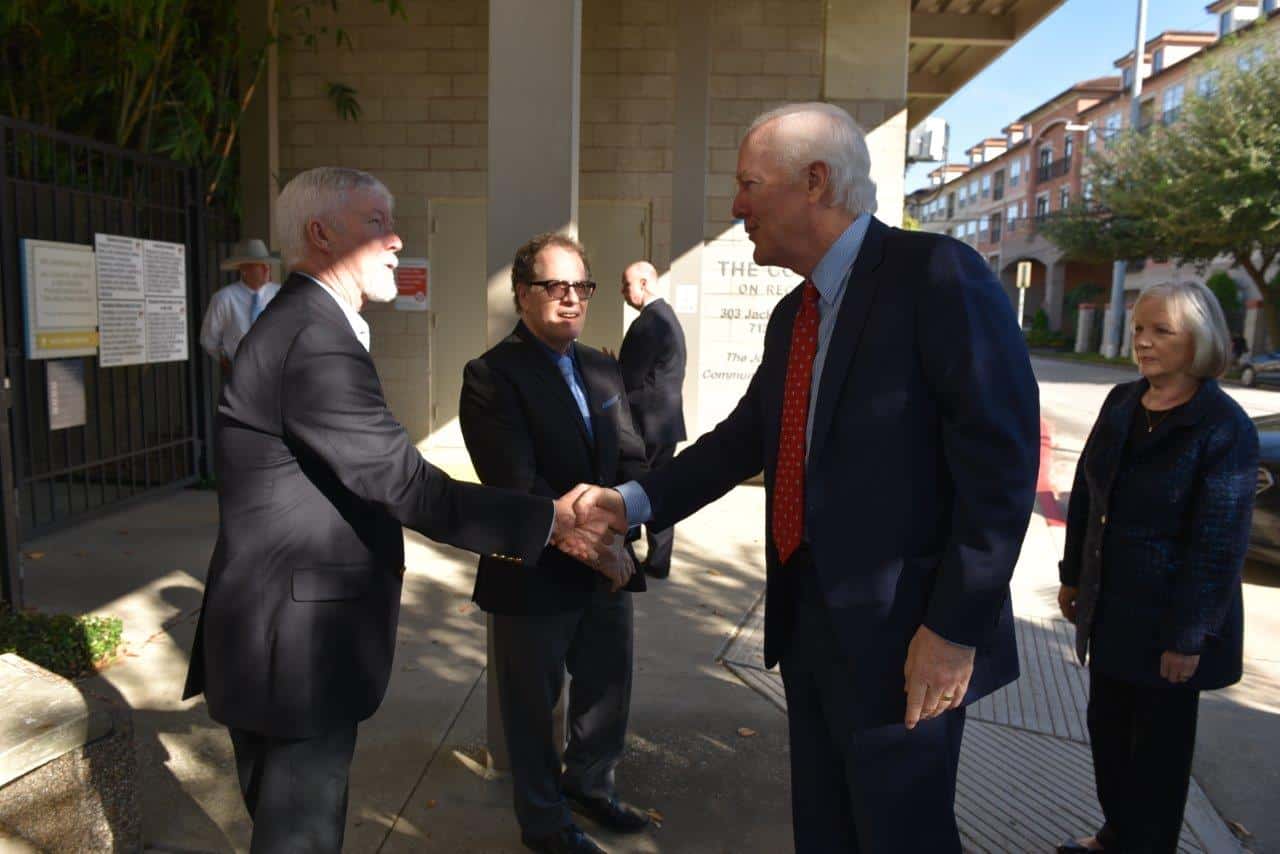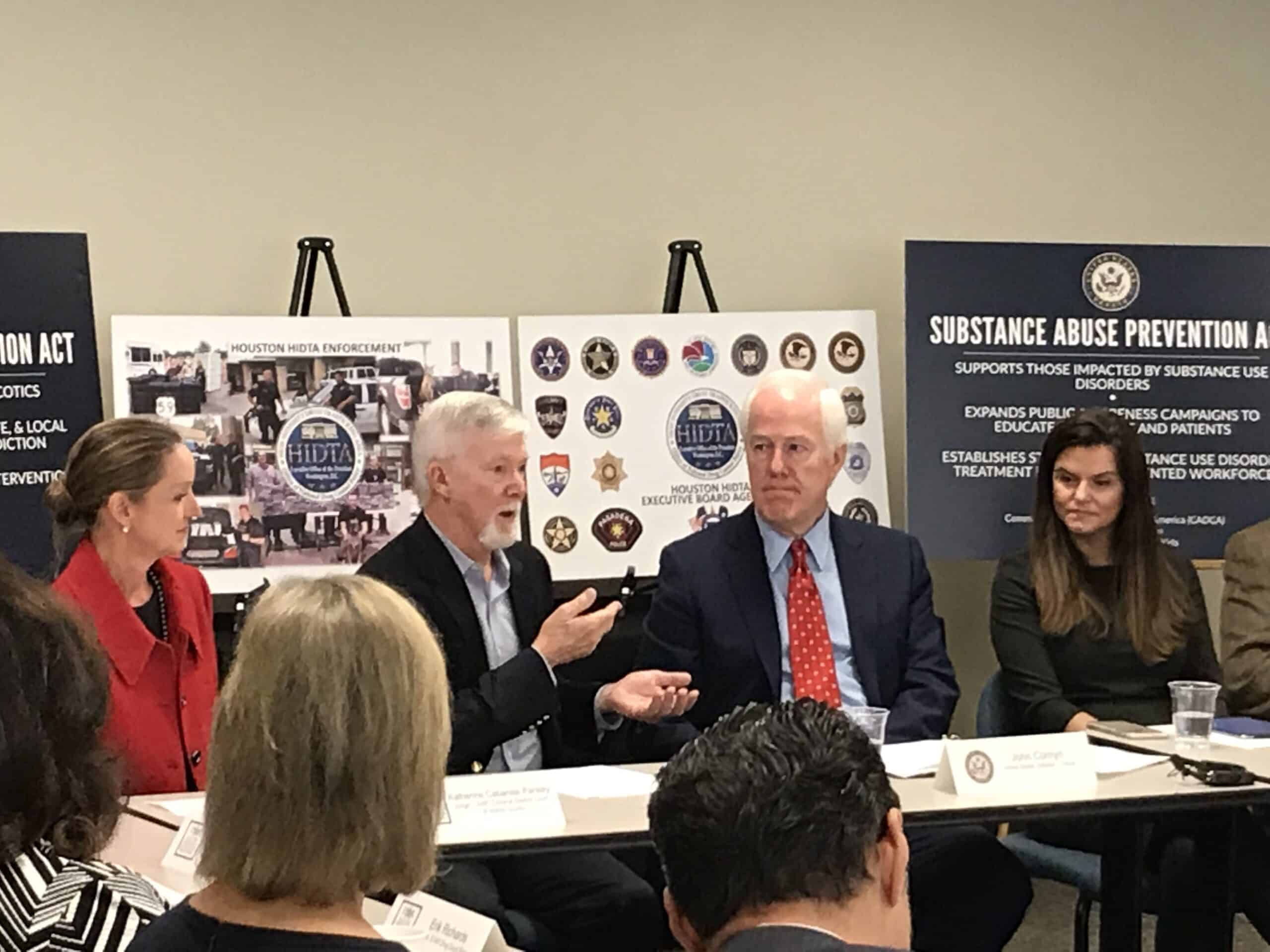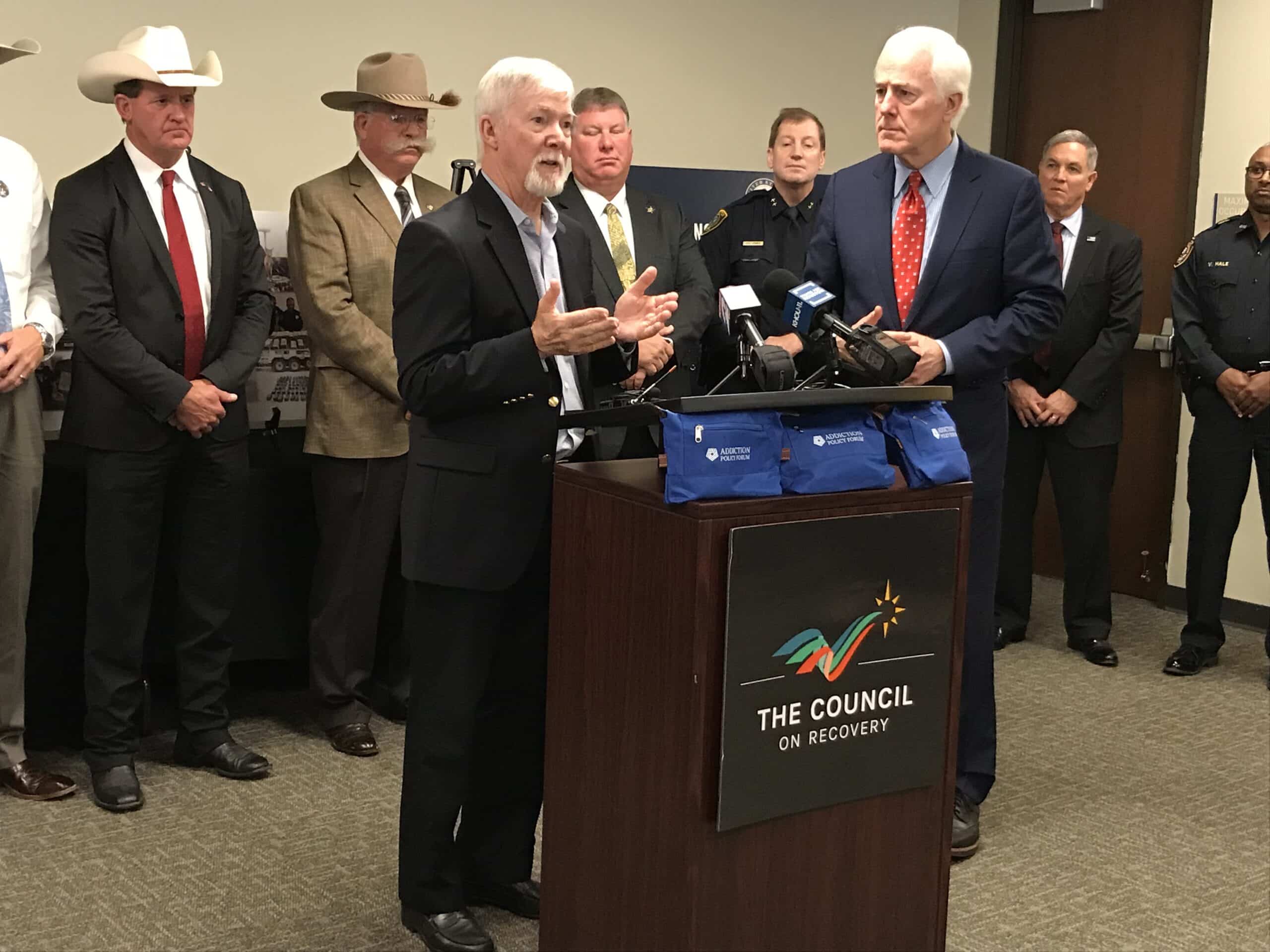

U.S. Senator John Cornyn (R-TX) visited The Council on Recovery on October 30th to host a roundtable discussion on opioid addiction in Houston. The discussion came a week after the President signed into law legislation that was originally introduced by Cornyn and U.S. Senator Diane Feinstein (D-CA). The new law, called the Substance Abuse Prevention Act, will help local groups in Houston combat substance abuse.
Participating in the roundtable were representatives from The Council on Recovery; Addiction Policy Forum; the Success Through Addiction Recovery (STAR) Drug Court Program; Houston High Intensity Drug Trafficking Area (HIDTA); both the Fort Bend Community and Southeast Harris Prevention Coalitions; and law enforcement leaders from Houston, Galveston, Harris County, Victoria County, and Fort Bend County.

The discussion focused efforts to fight Southeast Texas’ illegal drug supply, divert those with substance abuse problems to treatment and recovery programs, and work with local communities to prevent illegal drug use.
The group was also given a demonstration of how to use a Naloxone overdose kit to revive an opioid overdose victim. During the meeting, more than 100 overdose kits were distributed to law enforcement officials attending the roundtable.

The Substance Abuse Prevention Act, part of the SUPPORT for Patients and Communities Act, reauthorizes critical programs to reduce demand for narcotics, provides assistance to law enforcement and service providers so they can better combat opioid addiction, and supports those recovering from substance use disorders.
The Council on Recovery is Houston’s oldest and largest non-profit provider of prevention, education, treatment, and recovery services for individuals and their families affected by substance use disorders. The Council and its Center for Recovering Families are tirelessly at work battling opioid epidemic on a daily basis. If you or a loved one needs help, call The Council at (713) 942-4100 or contact us online.
